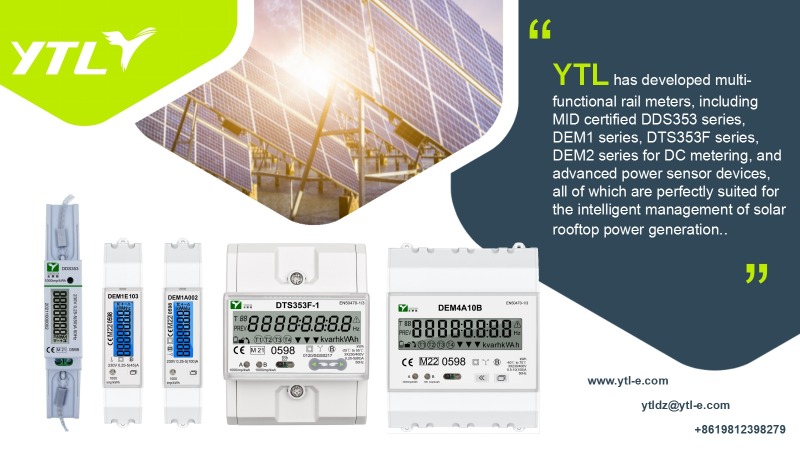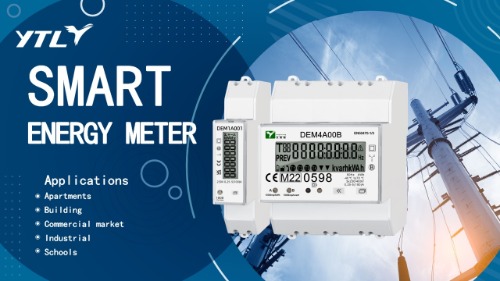
Why will electronic electricity meter replace mechanical energy meters?
Let's elaborate on their differences:
First, the structure and working principle of electronic electricity meter and mechanical energy meter:
The structure of mechanical energy meters is relatively simple, mainly through electromagnetic force to drive mechanical components for measurement. It is based on Faraday's law of electromagnetic induction, when a conductor cuts magnetic field lines in a magnetic field, an electromotive force is generated in the conductor, which drives the mechanical parts to move and realize the measurement of electrical energy.
The structure of electronic electricity meter is relatively complex, including sampling module, power module, display module, metering module, communication module, control module and MCU processing module. electronic electricity meter are measured through electronic circuits, current sampling elements are made of high-stability materials such as manganese copper, and high-quality circuits are used as computing processing components.

Second, the performance of electronic electricity meter and mechanical energy meters
1. Accuracy class : The electronic electricity meter adopts digital signal processing technology, which has higher measurement accuracy and can reach 0.5 or even 0.2 class accuracy. Mechanical energy meters are limited by mechanical structure and materials, and the accuracy is relatively low, generally 1.0 or 2.0 class.
2. Stability: The electronic electricity meter adopts electronic components, which is not affected by environmental factors such as moisture and vibration, and has good stability. The mechanical components of mechanical energy meters are easily affected by external interference and wear and aging, and their stability is relatively poor.
3. Anti-interference ability: The electronic electricity meter adopts digital processing technology, has strong anti-interference ability, and can effectively resist interference signals such as electromagnetic interference and capacitive interference. Mechanical energy meters, on the other hand, are relatively sensitive to these interference signals.
4. Life: electronic electricity meter adopts electronic components and advanced manufacturing technology, and has a relatively long lifespan, generally able to be used for more than 10 years. The mechanical parts of the mechanical energy meter are easy to wear and age, and the service life is relatively short in about 5 years.
Third, the function of electronic electricity meter and mechanical energy meter
1. Measurement: electronic electricity meter can measure a lot of power data, including current, voltage, active \ reactive power, power factor, active \ reactive electricity, demand, frozen electricity, rate electricity, harmonics, etc. Mechanical energy meters can only measure electricity.
2. Display mode: electronic electricity meter display methods, counter, LCD, dot matrix LCD, touch LCD, LCD display can be matched with backlight to facilitate viewing data at night. Mechanical energy meters basically use counters.
3. Application function: electronic electricity meter has a variety of functions, anti-tamper, prepayment, multi-rate, event alarm, event record, load profile, load control, remote communication, firmware upgrade, self-diagnosis, etc. Mechanical energy meters are only multifunctional for measuring electrical energy.
Compared with mechanical energy meters, electronic electricity meter have higher accuracy and stability, and have more functions, which are suitable for various application scenarios and meet the needs of smart grid development. The structure of mechanical energy meters is simple and the price is low, which is suitable for some scenarios with low accuracy requirements. With the increasing requirements for metering accuracy in the electricity market, data-based and refined management requires data transmission interaction, the smooth and orderly operation of smart grid requires control and management of user terminals, and the mechanical energy meter with a single energy measurement function can no longer meet the requirements and is replaced by an electronic electricity meter is an inevitable trend.

 English
English 简体中文
简体中文














